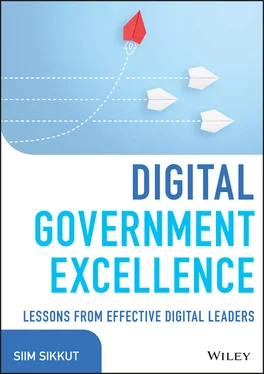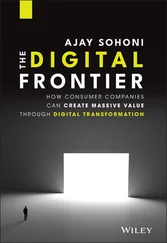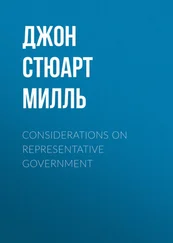Attention has also been paid to how to build relevant institutional conditions and mechanisms for digital government progress. Similarly, a body of literature and online advice is growing for practitioners on how to build up public sector teams to really deliver on the digital efforts: why and how to start digital (transformation) agencies or ministries, or even digital teams within various departments, borrowing bits of practice and know-how from private sector companies.
In this existing pool of very useful knowledge, surprisingly, only very little attention has been paid so far to leaders and leadership as one core component of achieving digital government excellence.
If you study history or management, you learn that great achievement and changes always are the sum of factors combined: a good plan, a good set-up and institutions, good leaders with effective practices. In other words, it takes great individual leaders to make things happen in a great way in great groups in right context.
Hence, this book. It is an attempt to provide a tour guide or playbook on how to achieve digital government excellence in terms of how to best lead such efforts and the relevant teams. Perhaps tour guide or playbook are not the best terms, because I do not even pretend to provide comprehensive models and a full checklist.
However, you do find in this book a range of tried-and-proven leadership practices and learnings from seasoned practitioners on how to make digital government reforms a success. They come in the form of firsthand accounts of leadership stories and tips from twenty globally renowned digital government leaders—from governments in all parts of the globe.
It is a collection of interviews with remarkable people who have led their governments to digital government excellence. These are their stories, in their own words, about some of the core dilemmas that practitioners are dealing with the most in digital government leadership jobs. I opted for the story or interview form because stories (case studies) have been proven to be one of the most effective methods to really learn from others.
Similar-style books have been compiled about private sector digital transformation leaders, but these are not entirely relevant to public sector specifics—although many insights can be surely transferred, too.
So, this long story finally short now. This book was written because the topic of digital government is increasingly hot, and governments and practitioners yearn for learning the best practices on how to make it all work. No one has assembled the lessons of relevant best leaders so far. The book presents shining examples of what good looks like in digital government leadership and management sense.
Choice of Twenty Remarkable Leaders
The professionals featured in the book have not been chosen because they happen to be known on the digital government circuit. They were chosen because they have been remarkable as leaders in this field and because they have shown a remarkable track record of leading digital government to progress in their countries. Another criterion was that the person would be insightful as an individual and as a leader, and effective as a manager. Somebody we could really learn from.
Some of these professionals had to start their government's digital journey from scratch. Some of them had to restart it or make a turnaround in strategy and delivery. Some of them had the hard job of continuing the track of excellence and bringing it to a whole next level. They represent a mix of backgrounds in terms of their government's digital maturity.
These leaders have not been chosen because their country is necessarily high-ranking in some digital government benchmark or another. Instead, they were chosen for the relative change they managed to make in their leadership term—the countries represented have been the fastest-improving ones in the global digital government space during their time in the role.
Some of them have been called government chief information officer; some have been chief digital officers. Some have been deputy ministers at the same time; some have been CEOs or directors general of digital agencies. The titles do not matter. They all have had the same kind of job—to lead the digital transformation and across the relevant government, not just in a department. Thus, all of them have had large-scale coordination challenges as part of their problem set. Their experience in this area should be particularly valuable, because coordination issues and how to best tackle them are among the biggest questions in each digital transformation leader's mind anywhere.
All of the twenty have inspiring stories to tell and real-life experiences to share. Each has a unique story, but there are many recurring themes.
None of the interviewees achieved excellent outcomes alone, and they are the first ones to acknowledge it. We could make another book on digital government excellence about the stories of remarkable number-twos or most-valuable experts. Or ministers and country leaders, without whom sometimes also nothing can really happen. Yet, this book is about the actual digital leaders only. Let us start with them, because they have had the ultimate leading duty despite ministers and teams around them.
The interviewees have been largely selected from national governments, given my own background as a government CIO in central government and bias of interest in this level. There are just a few very notable exceptions of people who were simply too remarkable to leave out.
It so happens that most of the professionals featured here have left their governments now—but their insights are just as relevant today. By the way, it so happens that several of them left during 2021, the year of preparing this book—I had started with about half the interviewees on-the-job, half already past that. Most of those already outside of government work as advisors globally, sharing their practical experience and thinking with next governments and organizations. Thus, they can be available also for you!
There could surely be many more digital government leaders to include. These twenty are by far not the only remarkable digital government leaders with lots to share. Yet, they are some of the most remarkable ones for sure—given their results and given their insights that you can read right now.
Who Can Benefit from This Book?
This book and its stories are of most value to other digital government leaders out there. You could be a chief information officer, chief digital officer, chief technology officer, or head of a digital and technology agency. Titles do not matter, as long as your job is to lead digital change in the whole of your government.
The book might resonate most powerfully for those just starting in such roles because you can immediately set sights and get tips to make a step change on how your organization delivers. However, mid-role leaders also can get a much-sought-after new inspiration on how to tweak and improve their team's and their own work further.
I think—and hope—that this collection of practically implementable, effective practices and thinking models is widely useful for any digital government practitioner, managers, and specialists who want to do their job in the best manner possible. Anyone can adopt the practices from here and make their team more effective in digital government delivery or suggest these practices to their leadership after reading the book.
That is why the book is for digital government policymakers and builders from around the world. From all levels of government. Whether in policy or technical delivery role, whatever the title. Whether in ministries or agencies, although especially in digital coordination units and digital service or govtech teams. Whether in a whole-of-government or policy domain responsibility—digital transformation as a challenge and as a practice is in some ways the same everywhere.
Читать дальше












